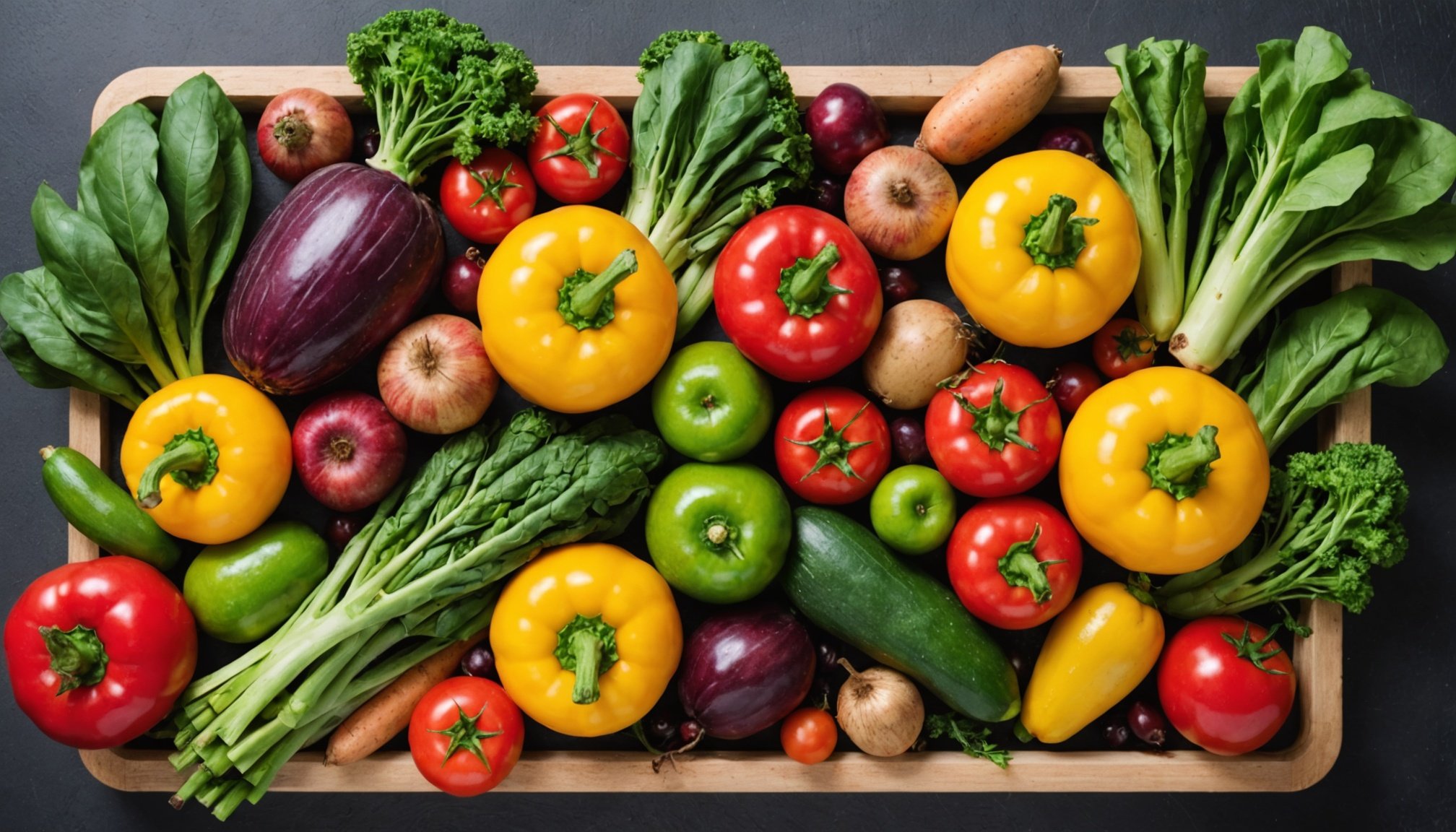Maximising Weight Loss with UK Seasonal Produce
Eating UK seasonal produce offers significant slimming benefits that support effective weight loss. Seasonal fruits and vegetables tend to be fresher and richer in nutrients, which not only promotes satiety but also helps regulate appetite naturally. For example, consuming summer berries or autumn root vegetables aligns with the body’s needs throughout the year, making it easier to manage calorie intake without feeling deprived.
When you choose UK seasonal produce, you benefit from lower-calorie, high-fibre foods that improve digestion and maintain energy levels. These fresh options are often grown closer to home, which reduces preservatives and enhances their nutritional profile—key factors in slimming benefits.
Have you seen this : Why Are Slimming Trends Gaining Popularity in the UK?
Adopting weight loss tips that focus on seasonal eating taps into natural diet rhythms and helps curb cravings. For instance, switching to winter greens and citrus fruits supports the immune system and energy balance during colder months, encouraging a healthier relationship with food. This approach also prevents reliance on processed snacks, essential for sustainable weight loss.
Incorporating more local, in-season produce into your diet can be a simple yet powerful strategy to boost success in your weight management journey.
Have you seen this : Is Maintaining Slimness Important for Health in the UK?
UK Seasonal Fruits and Vegetables for Slimming
Choosing the best UK fruits and vegetables for weight loss means focusing on in-season UK produce, which is fresher, more affordable, and packed with nutrients. Seasonal options vary each quarter, offering diverse low-calorie produce ideal for slimming.
In spring, enjoy asparagus, rhubarb, and strawberries—rich in fiber and water, these help increase satiety while keeping calories low. Summer brings cherries, courgettes, and cucumbers, all hydrating and nutrient-dense. Autumn offers apples, carrots, and pumpkins, providing fiber and essential vitamins. Winter vegetables like Brussels sprouts, leeks, and kale are hearty, filling, and low in calories.
These fruits and vegetables not only aid calorie control but also support sustained fullness thanks to their fiber content. For example, fiber slows digestion, preventing sudden hunger and promoting a balanced diet.
Shopping for UK seasonal produce on a budget is easy: visit local markets or farm shops, plan meals around seasonal hits, and freeze surplus for later. Eating in-season reduces reliance on imported, often pricier items, benefiting both waistline and wallet. Embracing the rhythm of UK seasonal fruits and vegetables ensures a slimming approach that is practical, nutritious, and enjoyable.
Nutritional Advantages of Seasonal Eating
Seasonal eating offers significant nutritional benefits, especially in the UK where local produce aligns with natural growth cycles. Fruits and vegetables harvested in their season tend to have higher nutrient density and greater freshness compared to imported options that require extended storage and transport. This means more vitamins, fibre, and antioxidants reach your plate, which is crucial for supporting metabolism and encouraging fat loss.
For example, vitamin C-rich British strawberries in summer retain more potency than those shipped from afar. Fibre from seasonal root vegetables and leafy greens improves digestion and keeps you feeling fuller longer, aiding weight management. Antioxidants found in fresh, local berries and greens combat oxidative stress, promoting overall health.
Focusing on a seasonal diet in the UK naturally reduces reliance on processed foods. When fresh produce is abundant, the temptation to reach for packaged snacks diminishes. This shift benefits metabolic health by lowering intake of preservatives and excess sugars common in processed options.
Prioritizing seasonal produce not only enhances nutrient intake but also supports sustainable food choices—a win for your health and the environment.
Slimming Meal Ideas Using UK Seasonal Produce
Seasonal UK recipes offer a fantastic way to enjoy fresh, nutrient-packed foods while supporting healthy recipes in your meal planning. Spring brings vibrant asparagus and tender peas—ideal for light lunches or sides. For breakfast, try a simple dish blending fresh strawberries with low-fat yogurt, creating a fruity boost that energizes your morning.
Summer produces like juicy tomatoes and courgettes add color and flavour to dinners; grilling these vegetables alongside lean proteins delivers satisfying yet slimming meals. Autumn’s bounty, including squash and Brussels sprouts, makes hearty soups and stir-fries that are easy to prepare and store.
When meal prepping, focus on washing, chopping, and portioning seasonal vegetables. Use airtight containers to keep ingredients fresh throughout the week, enabling quick assembly of meals. For snacks, incorporate seasonal fruits such as apples and blackberries into smoothies combined with spinach or kale for added fibre.
Incorporating seasonal UK recipes not only aligns with natural cycles but supports variety in your diet, making slimming meal ideas both enjoyable and sustainable. Embracing these fresh ingredients can enhance your meal planning while preserving nutritional value and taste.
Practical Strategies for Incorporating Seasonal Produce
Boosting eating habits through seasonal produce not only enhances flavor but supports a UK healthy lifestyle. Begin with weekly planning: select local, seasonal fruits and vegetables to build meals around. Batch cooking these ingredients saves time and reduces waste. For example, roasting a seasonal vegetable medley can be refrigerated and used throughout the week.
Partnering with local markets, veg box schemes, and farm shops connects you to fresh, affordable produce. These often offer a wider variety of seasonal options compared to supermarkets, encouraging experimentation and diversity in your diet.
Common barriers like affordability and storage can be overcome by buying in bulk and freezing surplus vegetables. For unfamiliar veg, try simple recipes that highlight their natural taste—steaming or light sautéing brings out flavors without complexity. These actionable weight loss tips encourage variety and sustainability, making healthy eating manageable and enjoyable. Integrating seasonality into your routine fosters lasting habits beneficial for wellbeing.
Evidence-Based Support for Seasonal Slimming
Seasonal slimming hinges on the scientific evidence that consuming fresh, locally grown produce aids effective weight management. UK public health data consistently emphasizes the benefits of diets rich in fruits and vegetables, particularly those harvested in season. Seasonal produce tends to be lower in calories but high in fibre and essential nutrients, which contribute to satiety and reduce overeating—key factors in weight control.
A study conducted in the UK showed that individuals incorporating more seasonal vegetables into their meals reported better adherence to weight management goals. This aligns with broader evidence suggesting that seasonal eating supports metabolic health by providing a natural variety of antioxidants and vitamins.
Several UK residents share testimonials highlighting how seasonal slimming helped them maintain a healthy weight without relying on restrictive diets. They emphasize that seasonal foods improve meal satisfaction and make it easier to stick with a balanced eating plan.
For those seeking more guidance, government guidelines endorse seasonal eating as part of a healthy lifestyle. Trusted resources recommend incorporating seasonal produce as a practical, sustainable strategy to support long-term weight management in the UK population.







